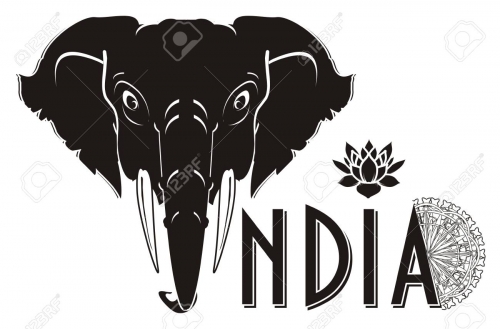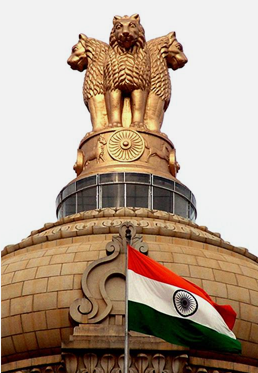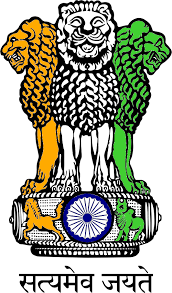Author: Zorawar Daulet Singh
As the neo-liberal world order declines, non-Western powers are uniquely equipped to manage the power transition and contestations over the basic tenets of the emerging system. India’s civilisational ethos of reconciling different ideas will be of immense value in navigating the uncertainty and turmoil at a critical juncture of world history.
Many in India bewail the decline of the so-called liberal world order. Yet, few ask whether India was even a part of that order or actually shared all the norms and values that underpinned it. As a consequence, much of the debate dwells on the assertion that, as a liberal democracy, India’s foreign policy and geopolitical choices must logically follow suit. In practice, this meant that India would share the burden of democracy promotion elsewhere in the world as well as join a camp of other democracies. Yet, that has not occurred as I have discussed previously (Singh 2018). But, for most, India’s choices are seen as pragmatic rather than as a result of a civilisational tradition.
Different from Liberal West
On the surface, India would seem like the ideal candidate for membership in a coalition of democracies. The Indian Constitution, along with a largely uninterrupted period of liberal democratic practice, has laid a normative framework that has been difficult to challenge by any serious political force. On human rights, freedom of speech, equality of opportunity, private property rights, political participation and peaceful transfer of power between competing parties or groups, and rule of law and access to justice, India is very much part of a liberal political tradition.
Yet, when India interacts with the world, other values and beliefs also come into play. This is because Indian thought is constituted by a variety of ideas, and being a liberal democracy is merely one of those identities. The Indian world view is a hybrid one, shaped by a combination of liberalism, a belief in a plural multi-civilisational world order, a unique colonial experience and postcolonial identity, an aspiration for regional leadership with a corresponding geopolitical identity, and Westphalian values of sovereignty and non-interference. Collectively, these have created a distinct world view and a prism through which India perceives and interacts with the world.
The Western tradition could not be more different. As American historian Eric McKittrick put it in the 1950s,
With nothing to push against it, [liberalism]1 thinks in absolutes; the occasional shadows which cross its path quickly lengthen into monsters; every enemy is painted in satanic terms, and it has no idea how it would behave if the enemy were either bigger or different. (Desch 2008: 10)
One study found that, between 1871 and 1965, “Liberal states waged 65 percent of non-major power wars (which almost always are against weaker states).” Another study found a similar pattern, with “Liberal states starting 100 percent of these wars of choice” (Desch 2008: 16). Extending this pattern to the last three decades would reveal a similar conclusion. There was, and still is, an ideological hubris and an ambition to change opposing systems in the Western mind. None of these facets are part of the Indian psyche and world view, and this makes superimposing concepts such as democracy promotion highly problematic in India’s case.
So, what makes India different? India’s social and political journey has been a process of competition, compromise, and adjustment between different ideas. The constitutional commitment to internal diversity and pluralism has shaped the outlook towards international politics too. Coexistence with ethnic, religious, and ideological diversity at home has often meant coexistence with alternative systems abroad. There is an innate illiberalism in American liberalism that does not prevail in Indian culture, which by historical tradition and experience is not so easily threatened or overwhelmed by rival “others.”
The introduction of civilisational values transforms this conversation. The biggest difference between India and the West is that the Western mind assigns little value to nationalism, culture, and civilisation. These are usually seen as anachronisms and obstacles in the path of homogenisation of political communities. Civilisation is seen as regressive and antithetical to the order and modernity that democracy and neo-liberalism are intended to bring. But, for India, it is a core value that enables rather than hinders its domestic order, social stability, and development.

If we are going to address the puzzle of why India’s domestic system as a democracy does not impact its outlook and behaviour towards other states and the world order in general, we must also ask: What impact does India’s longer civilisational history and culture have on its foreign policy? This question needs to be addressed seriously. There might be a strong case to be made that India’s civilisational history allows for a more complex relationship and interplay with rival ideologies and moral frameworks. The prolonged ability to negotiate differences and handle ambiguities conditions Indian political and cultural thought as well as its international relations. It was on this basic foundation that other values and norms have been absorbed into Indian thinking; specifically, the Westphalian concept of sovereignty and India’s unique colonial experience that fostered and further strengthened nationalism and created a distinct geopolitical identity for India.
One key distinction between India and Western approaches is that the latter promote democracy by providing moral, diplomatic, and financial support to individuals and organisations that are openly resisting or challenging the political status quo in a state. India rarely enters into such interference that might defy the ruling regime and undermine the sovereignty of a state. India works with the legitimate government of the day to offer different types of assistance. India’s interventions are in concert with the recipient—to strengthen the recipient state and its people—while the Western approach is fundamentally one of changing the target state and its institutions in concert with a section of the polity. It is about creating or exploiting a divide between the state and the people.
This difference in approaches can only be explained by the absence of a historical determinism in Indian strategic and philosophical thought, which, unlike Western liberal or radical Marxist ideas, has never had a proselytising historical tradition nor an ideological vision of the world that insists on universality as a necessary prerequisite for a world order and geopolitical cooperation. It is no accident that India’s democracy has managed to survive in a region with diverse regimes and political systems. It is also instructive that India was among the first to embrace non-alignment and carve out its own path when confronted with rival ideologies, neither of which were entirely appealing to India’s identity, culture, and ethos. Prime Minister Narendra Modi’s multi-alignment is another version of that same philosophy, that India can find common ground and derive stable and mutually beneficial ties with a variety of different civilisational states and political systems.
Changing World Order
For the past decade, it is increasingly clear that the neo-liberal order, or at least the dominant variant of it that we had become familiar with, along with some of its institutions are losing their effectiveness to supply public goods and govern a more complex globalised system. The demands and range of interests of the global South and non-Western world will not only require major reforms of these institutions, but more likely the establishment of new institutions to fill the governance void. The process has already begun. It is also clear that India will be at the forefront of collaboration with other rising powers and some of the traditional great powers in experimenting with new regional institutions and norms to supply public goods and order around Asia.
Only when there is clarity about the type of world we would like to see emerge can we put forward ideas or concepts and practise them in our foreign policy. Do we seek a multipolar polycentric world order where different civilisational states are going to manage the international system in a less hierarchical way, which is another way of saying the democratising of international relations? This is the dominant voice of India. If the central strategic task is transitioning from a unipolar neo-liberal world order for the privileged few to a multipolar interdependent world order with many civilisational states as members of such an open and inclusive international community, then we need a reformed vision to accommodate the diversity and pre-empt the chaos that could ensue from the power transition that is already under way. And, there is no automatic correlation between regime types and this reformed world order.
This is not an abstract insight. All we have to do is look at India’s foreign policy during the phase when its identity as a democracy was at its peak: the post-2000 era. This is the period of deep engagement with the United States and its allies. And yet, when it came to ideas on world order, international security, global governance, reforming the Bretton Woods institutions, etc, India formed partnerships with a variety of rising or re-emerging powers and civilisations, often with different political systems that were unsatisfied with the prevailing order and the position of these states within that order. Over the past decade, this trend has become even stronger: BRICS (Brazil, Russia, India, China and South Africa), Asian Infrastructure Investment Bank (AIIB), and Shanghai Cooperation Organisation (SCO) are all manifestations of this. These international and regional networks or institutions have been established not because its members are ordered in identical ways internally, but because many of these states had similar ideas of world order, and it made sense to collaborate in transitioning the world towards those images.
The good news is that the basic framework of a liberal international order (as distinct from the ascendance and decline of neo-liberal ideology over the past few decades) is already extensive in its ability to assimilate diverse rising powers with different political systems. The challenge is renewing that basic structure of an open and rule-based system, while making the necessary adjustments to expand the institutional and normative capacity to accommodate a larger swathe of the non-Western world. As Ikenberry (2011: 65) correctly points out, “The world is not rejecting openness and markets; it is asking for a more expansive notion of stability and economic security.” It is neo-liberalism as a global ordering concept that has unravelled and been discredited in the past decade, not just because it failed to address the problem of growth and sustainable development, but also because it sought to negate the self-images of several resurging non-Western civilisations. But, an open global economic order with rules to guide interdependence is still very much a worldwide demand.
The alternatives to an open world order—spheres of influence, closed regional blocs, neocolonial mercantilist networks, or, in essence, a fragmented order—are not appealing to rising powers because they seek wider regional and global access. Having benefited from global interdependence, they want that basic normative framework of an open system to survive. Indeed, one of the deep ironies of contemporary international relations is that rising powers, such as India, China and others, have today become the vanguards or champions for a reformed rule-based economic order that can enable their domestic transformations to continue, while the established liberal great powers have become revisionist and conservative in their orientation.
 Finally, a word of caution: India has to be extremely careful about uncritically lapping up the “democracy promotion” discourse, which is often aimed at polarising Asia and the world, and denying many states the flexibility of pursuing more complex foreign policies and balance of power strategies (Singh 2018). In the 1950s, Jawaharlal Nehru went to the extent of instructing his diplomats to avoid phrases such as the “free world,” “iron curtain,” or any politically-charged binary that could let it appear that India was parroting Western Cold War rhetoric that potentially positioned it at a disadvantage vis-à-vis other major powers. Modi’s June 2018 speech at the Shangri- La Dialogue in Singapore echoed this approach (MEA 2018). Rejecting the idea that India has a singular identity that then must automatically place it in one coalition or bloc, the Prime Minister spoke of a multitude of groups and partners where the common link was not democracy or shared domestic political systems, but converging material interests or shared ideas and norms of the world order or overlapping concepts of security.
Finally, a word of caution: India has to be extremely careful about uncritically lapping up the “democracy promotion” discourse, which is often aimed at polarising Asia and the world, and denying many states the flexibility of pursuing more complex foreign policies and balance of power strategies (Singh 2018). In the 1950s, Jawaharlal Nehru went to the extent of instructing his diplomats to avoid phrases such as the “free world,” “iron curtain,” or any politically-charged binary that could let it appear that India was parroting Western Cold War rhetoric that potentially positioned it at a disadvantage vis-à-vis other major powers. Modi’s June 2018 speech at the Shangri- La Dialogue in Singapore echoed this approach (MEA 2018). Rejecting the idea that India has a singular identity that then must automatically place it in one coalition or bloc, the Prime Minister spoke of a multitude of groups and partners where the common link was not democracy or shared domestic political systems, but converging material interests or shared ideas and norms of the world order or overlapping concepts of security.
Again, what allows for such multi-directional interactions and plurality in India’s foreign policy is a civilisational conception of the world order as an open and inclusive community of states. Such a philosophy is anathema for liberal absolutism and its drive for universality, which shapes much of the tragedy of Western geopolitics.
Source: https://www.vision-gt.eu





 del.icio.us
del.icio.us
 Digg
Digg
Les commentaires sont fermés.